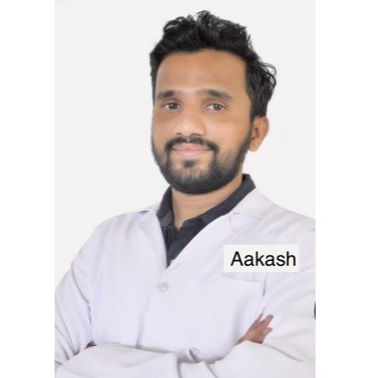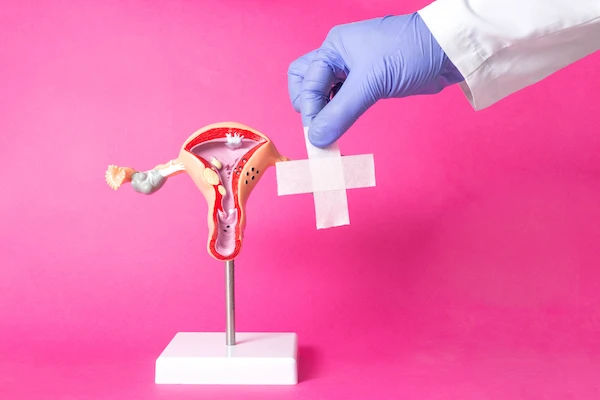Understanding Cervical Cancer Basics
Gain a clear understanding of cervical cancer basics, including what it is, its primary cause (HPV), common symptoms to watch for, and the critical importance of early detection through screening and vaccination for prevention.

Written by Dr. Mohammed Kamran
Reviewed by Dr. Rohinipriyanka Pondugula MBBS
Last updated on 19th Aug, 2025

Cervical cancer is one of the most common cancers affecting women, but the good news is that it is preventable and treatable if detected early. If you or someone you know is concerned about cervical health, this guide will help you understand the basics—what cervical cancer is, its symptoms, causes, and how to protect yourself.
What Is Cervical Cancer?
Cervical cancer occurs when abnormal cells in the cervix (the lower part of the uterus that connects to the vagina) grow uncontrollably. These cells can form a tumor and, if left untreated, spread to other parts of the body.
Most cervical cancers are caused by a persistent infection with certain types of human papillomavirus (HPV), a common sexually transmitted infection. However, not all HPV infections lead to cancer—our immune system usually clears the virus on its own. But in some cases, HPV can cause changes in cervical cells that may develop into cancer over time.
Symptoms of Cervical Cancer
In its early stages, cervical cancer may not cause any noticeable symptoms. This is why regular screenings are so important. However, as the disease progresses, some common signs may include:
- Abnormal vaginal bleeding (after menopause, between periods, or after intercourse)
- Unusual vaginal discharge (may be watery, bloody, or foulsmelling)
- Pelvic pain or pain during sex
- Painful urination or frequent urination
- Unexplained weight loss and fatigue
If you experience any of these symptoms, it’s important to see a doctor. While these signs don’t always mean cancer, they should never be ignored.
Consult Top Physician
What Causes Cervical Cancer?
The primary cause of cervical cancer is HPV infection, particularly highrisk types like HPV16 and HPV18. However, other factors can increase the risk, including:
- Smoking – Weakens the immune system and makes it harder to fight HPV.
- Weakened immune system – Conditions like HIV or long-term use of immunosuppressive drugs can increase risk.
- Long-term use of birth control pills – Some studies suggest a link, but more research is needed.
- Multiple pregnancies – Women who have had three or more full-term pregnancies may be at higher risk.
- Family history – Having a close relative with cervical cancer may slightly increase risk.
How Can You Prevent Cervical Cancer?
The best way to fight cervical cancer is through prevention and early detection. Here’s what you can do:
1. Get Vaccinated Against HPV
The HPV vaccine is highly effective in preventing infections from the most dangerous HPV strains. It is recommended for:
- Girls and boys aged 9–14 years (two doses)
- Women and men up to age 26 (if not vaccinated earlier)
- Some adults up to age 45, depending on risk factors
2. Regular Screening Tests
- Pap Smear (Pap Test) – Checks for abnormal cervical cells. Women aged 21–65 should get regular Pap tests.
- HPV Test – Detects high-risk HPV strains. Often done alongside a Pap test for women 30 and older.
3. Practice Safe Sex
- Using condoms and limiting sexual partners can reduce HPV exposure.
4. Quit Smoking
- Smoking increases cervical cancer risk, so quitting can help protect your health.
5. Maintain a Healthy Lifestyle
- Eating a balanced diet, exercising, and keeping your immune system strong can help your body fight infections.
When Should You See a Doctor?
If you notice any unusual symptoms, don’t wait—consult a doctor immediately. Even if you feel fine, regular screenings are crucial. Early detection can make treatment easier and more successful.
Book a Consultation or Screening Test
If you’re due for a Pap test, HPV test, or HPV vaccination, you can easily schedule an appointment through Apollo 24|7. Early action can save lives!
Final Thoughts
Cervical cancer is a serious but preventable disease. By staying informed, getting vaccinated, and keeping up with screenings, you can protect yourself and your loved ones. If you have any concerns, don’t hesitate to reach out to a healthcare provider—your health is worth it!
Stay safe, stay healthy!
Consult Top Physician
Consult Top Physician

Dr. Sandhya Chandel
General Physician/ Internal Medicine Specialist
16 Years • MBBS, MD (Int. Med.), IDCCM
Bilaspur
Apollo Hospitals Seepat Road, Bilaspur
(100+ Patients)

Dr. Mohamed Azeem
General Physician/ Internal Medicine Specialist
2 Years • MBBS,MD(Internal Medicine) CCEBDM
Karaikudi
Apollo Hospitals Karaikudi, Karaikudi

Dr. Harshendra Jaiswal
General Physician/ Internal Medicine Specialist
12 Years • MBBS , MD (General medicine)
Kolkata
108 DHANA DHANVANTARI Clinic, Kolkata
(25+ Patients)

Dr Aakash Andgi
General Physician/ Internal Medicine Specialist
9 Years • MBBS MD
Bengaluru
Apollo Clinic, JP nagar, Bengaluru

Dr. Anand Ravi
General Physician
2 Years • MBBS
Bengaluru
PRESTIGE SHANTHINIKETAN - SOCIETY CLINIC, Bengaluru
Consult Top Physician

Dr. Sandhya Chandel
General Physician/ Internal Medicine Specialist
16 Years • MBBS, MD (Int. Med.), IDCCM
Bilaspur
Apollo Hospitals Seepat Road, Bilaspur
(100+ Patients)

Dr. Mohamed Azeem
General Physician/ Internal Medicine Specialist
2 Years • MBBS,MD(Internal Medicine) CCEBDM
Karaikudi
Apollo Hospitals Karaikudi, Karaikudi

Dr. Harshendra Jaiswal
General Physician/ Internal Medicine Specialist
12 Years • MBBS , MD (General medicine)
Kolkata
108 DHANA DHANVANTARI Clinic, Kolkata
(25+ Patients)

Dr Aakash Andgi
General Physician/ Internal Medicine Specialist
9 Years • MBBS MD
Bengaluru
Apollo Clinic, JP nagar, Bengaluru

Dr. Anand Ravi
General Physician
2 Years • MBBS
Bengaluru
PRESTIGE SHANTHINIKETAN - SOCIETY CLINIC, Bengaluru




